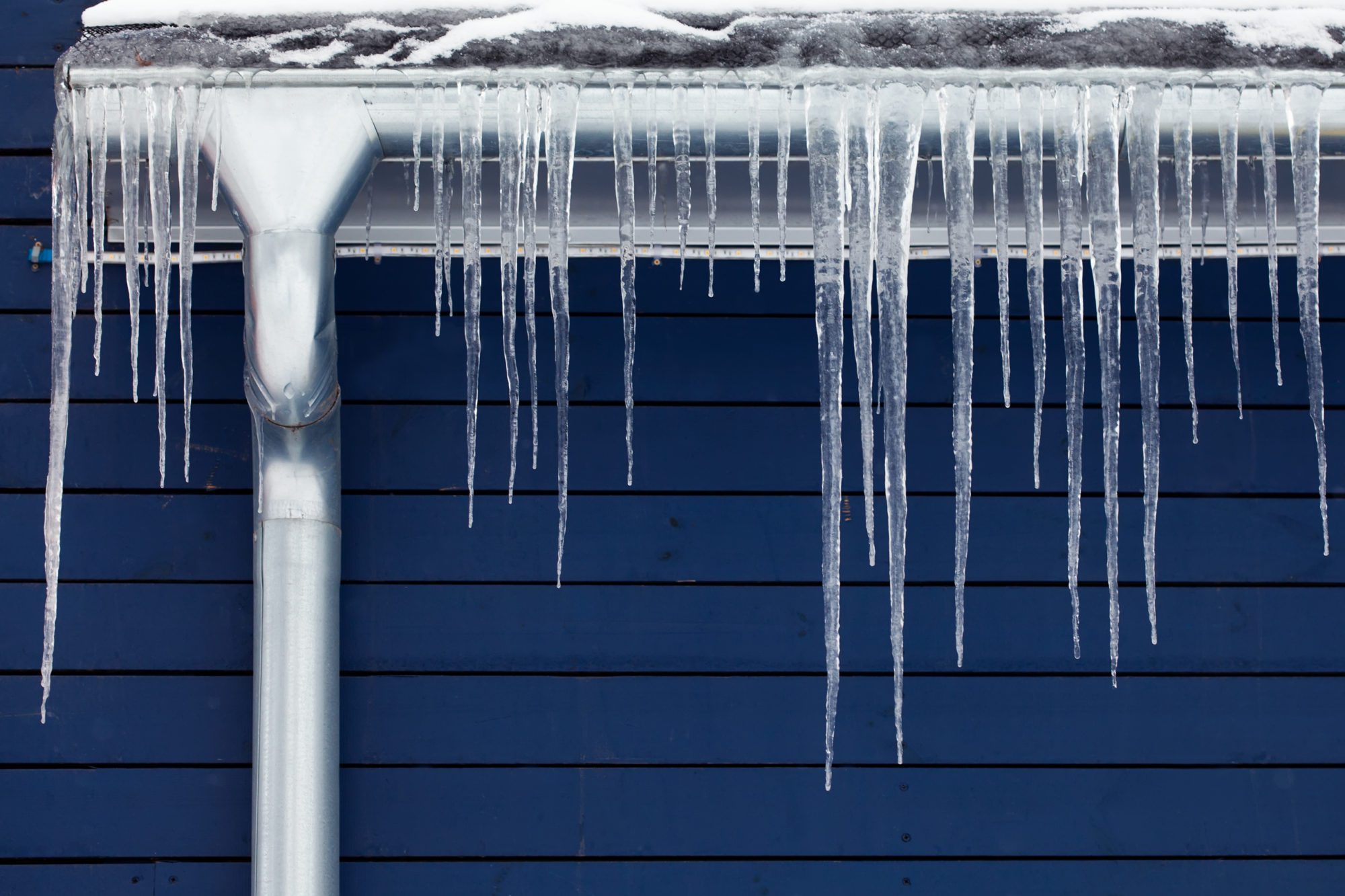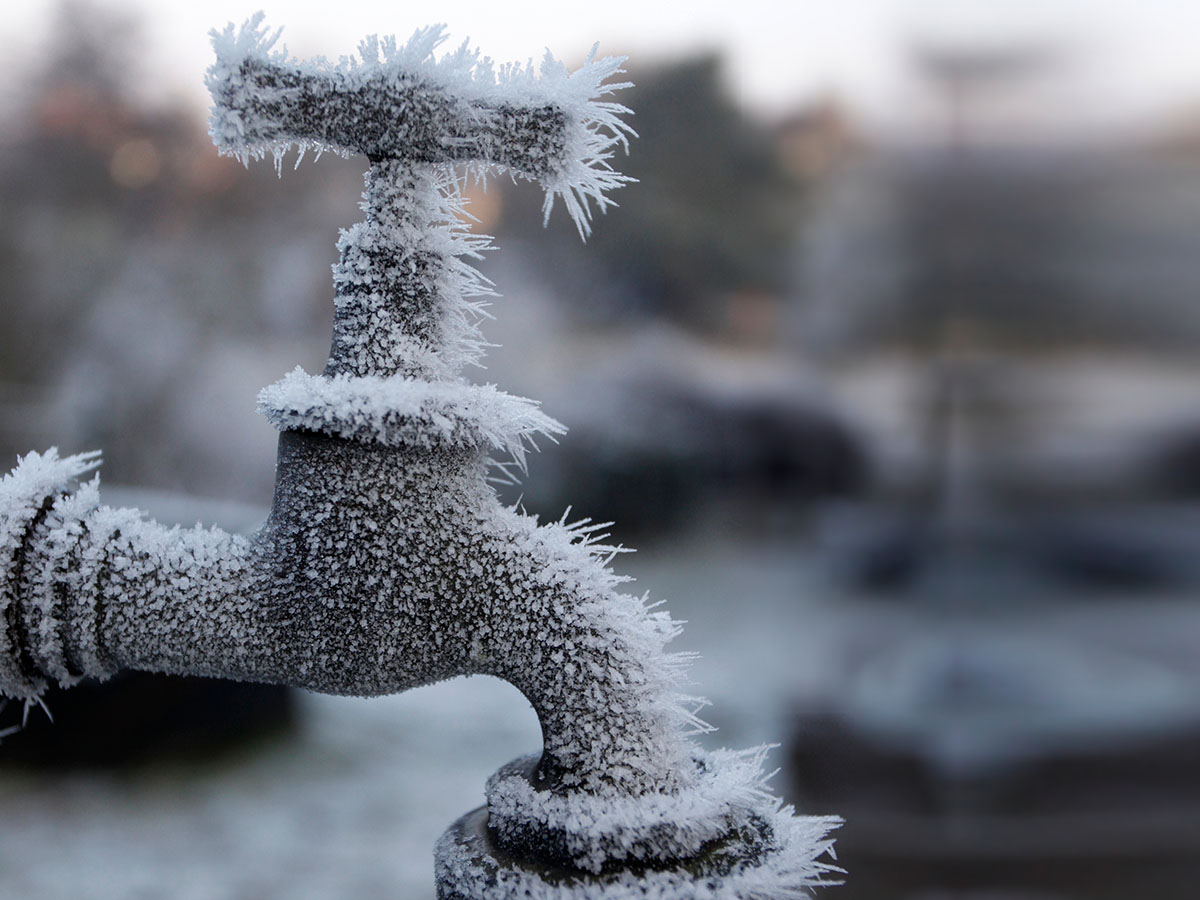Avoiding Frozen Pipes in Cold Weather: Essential Advice
Avoiding Frozen Pipes in Cold Weather: Essential Advice
Blog Article
The content listed below pertaining to Winter Plumbing Precautions: Preventing Frozen Pipes is totally attention-grabbing. Don't miss out on it.

Winter can wreak havoc on your pipes, particularly by freezing pipelines. Right here's exactly how to stop it from occurring and what to do if it does.
Intro
As temperatures decline, the risk of frozen pipelines boosts, possibly resulting in pricey repair work and water damages. Recognizing how to stop frozen pipelines is vital for homeowners in cool environments.
Avoidance Tips
Protecting susceptible pipelines
Wrap pipelines in insulation sleeves or use warmth tape to safeguard them from freezing temperatures. Concentrate on pipelines in unheated or external areas of the home.
Heating strategies
Maintain indoor spaces properly heated, specifically locations with plumbing. Open closet doors to permit warm air to circulate around pipes under sinks.
How to recognize frozen pipelines
Try to find decreased water circulation from faucets, uncommon smells or noises from pipelines, and visible frost on revealed pipes.
Long-Term Solutions
Architectural changes
Take into consideration rerouting pipes away from exterior walls or unheated areas. Include additional insulation to attics, basements, and crawl spaces.
Upgrading insulation
Purchase high-quality insulation for pipelines, attic rooms, and walls. Proper insulation aids maintain consistent temperatures and reduces the risk of frozen pipes.
Shielding Outdoor Pipes
Yard pipes and exterior faucets
Separate and drain pipes garden tubes prior to winter. Mount frost-proof spigots or cover outdoor taps with shielded caps.
Understanding Icy Pipelines
What triggers pipelines to ice up?
Pipelines ice up when exposed to temperature levels below 32 ° F (0 ° C) for extended periods. As water inside the pipelines ices up, it broadens, putting pressure on the pipeline walls and potentially creating them to break.
Dangers and problems
Icy pipes can result in supply of water disturbances, residential or commercial property damage, and costly repair services. Ruptured pipes can flood homes and trigger comprehensive structural damage.
Signs of Frozen Water Lines
Identifying icy pipes early can avoid them from rupturing.
What to Do If Your Pipelines Freeze
Immediate activities to take
If you presume icy pipelines, maintain faucets open to ease pressure as the ice melts. Make use of a hairdryer or towels taken in hot water to thaw pipes slowly.
Final thought
Avoiding icy pipes needs proactive steps and fast feedbacks. By understanding the causes, indications, and safety nets, property owners can protect their plumbing during winter.
Helpful Tips to Prevent Frozen Pipes this Winter
UNDERSTANDING THE BASICS: WHY PIPES FREEZE AND WHY IT’S A PROBLEM
Water freezing inside pipes is common during the winter months, but understanding why pipes freeze, and the potential problems it can cause is crucial in preventing such incidents. This section will delve into the basics of why pipes freeze and the associated problems that may arise.
THE SCIENCE BEHIND FROZEN PIPES
When water reaches freezing temperatures, it undergoes a physical transformation and solidifies into ice. This expansion of water as it freezes is the primary reason pipes can burst. As the water inside the pipe freezes, it expands, creating immense pressure on the walls. If the pressure becomes too great, the pipe can crack or rupture, leading to leaks and water damage.
FACTORS THAT CONTRIBUTE TO PIPE FREEZING
Low Temperatures: Extremely cold weather, especially below freezing, increases the risk of pipes freezing. Uninsulated or Poorly Insulated Pipes: Pipes located in unheated areas, such as basements, crawl spaces, or attics, are more prone to freezing. Insufficient insulation or lack of insulation altogether exacerbates the problem. Exterior Wall Exposure: Pipes running along exterior walls are susceptible to freezing as they encounter colder temperatures outside. Lack of Heating or Temperature Regulation: Inadequate heating or inconsistent temperature control in your home can contribute to frozen pipes. PROBLEMS CAUSED BY FROZEN PIPES
- Pipe Bursting: As mentioned earlier, the expansion of water as it freezes can cause pipes to burst, resulting in significant water damage.
- Water Damage: When pipes burst, it can lead to flooding and water damage to your property, including walls, ceilings, flooring, and personal belongings.
- Structural Damage: Prolonged exposure to water from burst pipes can compromise the structural integrity of your home, leading to costly repairs.
- Mold and Mildew Growth: Excess moisture from water damage can create a favorable environment for mold and mildew growth, posing health risks to occupants.
- Disrupted Water Supply: Frozen pipes can also result in a complete or partial loss of water supply until the issue is resolved.
WHY CERTAIN PIPES ARE MORE PRONE TO FREEZING
- Location: Pipes located in unheated or poorly insulated areas, such as basements, crawl spaces, attics, or exterior walls, are at higher risk of freezing.
- Exterior Pipes: Outdoor pipes, such as those used for irrigation or exposed plumbing, are particularly vulnerable to freezing as they are directly exposed to the elements.
- Supply Lines: Pipes that carry water from the main water supply into your home, including the main water line, are critical to protect as freezing in these lines can affect your entire plumbing system.
- Underground Pipes: Pipes buried underground, such as those connected to sprinkler systems or outdoor faucets, can be susceptible to freezing if not properly insulated.
https://busybusy.com/blog/helpful-tips-to-prevent-frozen-pipes-this-winter/

As an avid reader on 6 Ways to Prevent Frozen Pipes, I was thinking sharing that excerpt was valuable. Liked our posting? Please quickly share it. Let someone else locate it. Thank you for your time. Come back soon.
About This Report this page